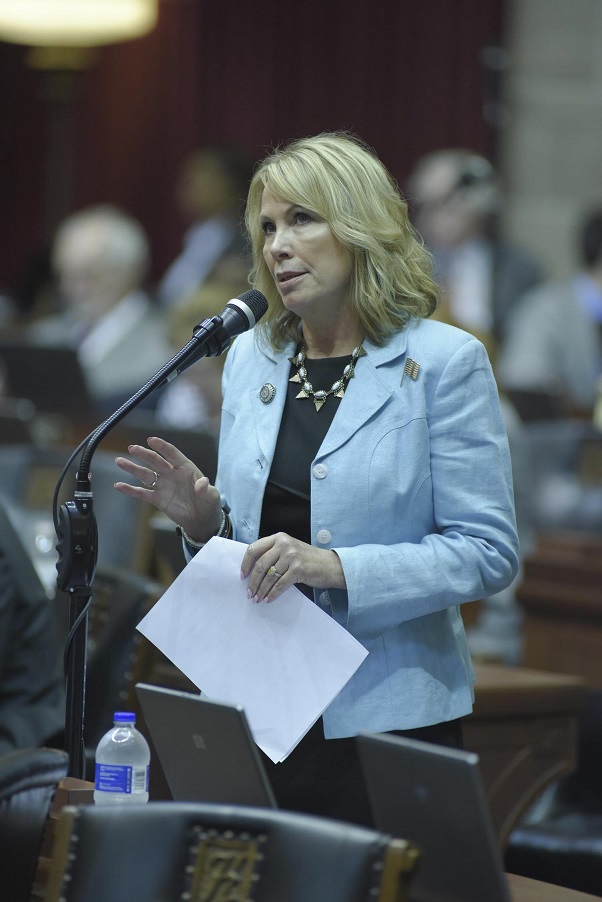Lawmakers and children’s advocates are praising the signing into law of legislation with several provisions meant to help the state better care for children, including those who have been abused or trafficked.

Emily van Schenkhof with Missouri KidsFirst called Senate Bill 160 the best piece of legislation to come out of the 2017 regular legislative session.
“We came together as the General Assembly, outside advocates, [and] the governor’s office to pass some really important legislation,” said van Schenkhof. “It really was, I think, an example of how when we prioritize children we really can come together to make good policy decisions and makes sure we get things across the finish line that make our state safer for children.”
Van Schenkhof said one of the most important pieces of SB 160 prevented the destruction of some 11,000 records related to cases of children that were abused but the perpetrator could not be identified. An appeals court ruling put those records in jeopardy.
“That was an extremely time-sensitive piece of the bill,” said van Schenkhof. “Children’s safety could have been at risk if we didn’t have this information in our system.”
SB 160 was carried in the House by Representative Diane Franklin (R-Camdenton). She said the ability to retain such records allows investigators to detect patterns in cases of abuse or neglect.
“The first time that, perhaps, it’s reported or it becomes known to the department, the child may be only three months old and it’s just been identified that abuse has taken place. If we’re not able to retain those records, then let’s say they’re two years old and there’s abuse and we’re not able to see that there’s a pattern in that child’s life of who they’re with that is resulting in harm to the child,” said Franklin.
Another key provision in SB 160 changes the definition of child abuse and neglect to include trafficking. Van Schenkhof said under state law, the ability for the state Children’s Division to get involved in a case hinged on a perpetrator having care, custody, and control of a child.
Franklin said the provision to change those definitions was “paramount.” It also makes available to Missouri more federal money, and aids in prosecution of both state and federal cases by aligning Missouri’s definition with that of federal law.
SB 160 also establishes the Foster Care Bill of Rights, to establish in law how foster children will be treated and how their rights will be protected. Another provision allows children entering foster care to be placed with people who are not related to, but have a close relationship with, the child or the child’s family – otherwise known as “kinship placements.”
SB 160 also extends through 2023 the existence of the legislature’s Joint Committee on Child Abuse and Neglect.
Van Schenkhof praised the work done by Franklin on this legislation.
Governor Eric Greitens (R) signed SB 160 into law last week. The provisions dealing with the definitions of abuse and neglect and with retention of abuse records became effective immediately.
Note: Emily van Schenkhof’s last day with Missouri KidsFirst was last week. In July she begins work as the Executive Director of the Children’s Trust Fund.


